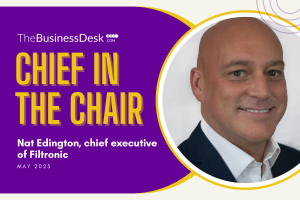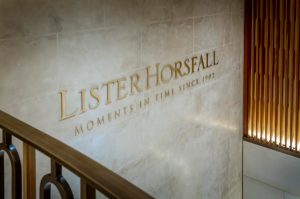‘Catastrophic’ HBOS collapse blamed on Crosby and Hornby

SIR James Crosby and Andy Hornby could face being banned from taking future roles in the financial sector after being heavily criticised in a damning report into the collapse of HBOS in 2008.
The Banking Standards Commission has asked the Financial Services Authority (FSA) to consider if the two top bankers, plus the bank’s former chairman Lord Stevenson, should be barred for life from the industry.
It said Sir James and Mr Hornby, former bosses at the bank who still live in Yorkshire, were largely to blame for the collapse of HBOS, then the UK’s fifth biggest bank.
The commission accused the trio of a “colossal failure” of management.
The commission’s report, called “An Accident Waiting to Happen” said: “The primary responsibility for the downfall of HBOS should rest with Sir James Crosby, architect of the strategy that set the course for disaster, with Andy Hornby, who proved unable or unwilling to change course, and Lord Stevenson, who presided over the bank’s board from its birth to its death.
“Lord Stevenson, in particular, has shown himself incapable of facing the realities of what placed the bank in jeopardy from that time until now.”
The Banking Standards Commission was set up to improve the UK’s banking system, following the 2008 financial crisis. Its members are MPs, members of the House of Lords, and the Archbishop of Canterbury.
City regulator the FSA also came in for criticism, with the commission saying it was “unsatisfactory” that the watchdog appeared “to have taken no steps to establish whether the former leaders of HBOS are fit and proper persons to hold the approved persons status elsewhere in the UK financial sector”.
HBOS is now part of Lloyds Banking Group. Lloyds, presently 39% owned by the tax-payer, stressed the issues dealt with by the commission happened before its involvement.
The commission said HBOS had been “reckless” in its lending policies; policies that resulted in losses of £46bn.
Such losses would have led to insolvency had the bank not been bailed out by the taxpayer and Lloyds TSB, the commission claimed.
The report said the strategy set by the board after 2001 “sowed the seeds of its destruction.”
That was the year in which the Halifax and the Bank of Scotland agreed to merge, to form HBOS.
Senior executives of HBOS tried to blame losses on the temporary closure of wholesale markets.
During the financial crisis banks stopped lending to each other, resulting in their short-term supplies of funding drying up.
But members of the commission said they were disappointed by such explanations, as it was the lending approach that was to blame.
“This culture was brash, underpinned by a belief that the growing market share was due to a special set of skills, which HBOS possessed and which its competitors lacked,” said the report.
“This was a traditional bank failure pure and simple. It was a case of a bank pursuing traditional banking activities and pursuing them badly.”
The FSA failed to regulate HBOS, the commission said.
The FSA has been called by the commission to answer questions about its relationship with HBOS but because the organisation was abolished at the start of this month its replacement, the Prudential Regulation Authority, said it would be studying the report.







